- Home
- Scott Chapman
The Templar Scroll: Book six in the series Page 14
The Templar Scroll: Book six in the series Read online
Page 14
“You think I will recover then?” said the Mason.
“Probably, but we need to break your left arm again and reset it,” said Whitehead. “That is if you want to use it again.”
Waves
It was the first time the co-pilot had been punched since he left infant school. His instant reaction was outrage and he opened his mouth to shout, but the captain’s hand was still inches from his face, an index finger pointing right between his eyes.
“Sit down, shut up and get a weather report,” said the captain. His voice now carried none of its normal professional polish; it was the sound of an angry man. The co-pilot stared at his boss, pain and outrage blocking out any other thoughts for the moment. He kept his silence.
Satisfied that his idiot co-pilot was no longer a threat, the captain reached over and pushed the control joystick forward again. This time the aircraft’s dive was unrestrained by conflicting commands.
Whatever chaos had existed inside the aircraft until now paled into nothing compared to this dive. Everyone was thrown backwards and upwards against their seatbelts, and more luggage storage units slammed open, sending a new avalanche of baggage onto the passengers below. Screams erupted throughout the cabin and several passengers found the violent motion too much to bear and vomited.
Strapped into her seat, Tilly looked over at Sparke, his face almost a blur in the constant vibration.
“What’s happening, what is going on?” she shouted above the racket.
To Sparke the chaos and horror that surrounded him was a background noise, but not a distraction. The vibration of the aircraft meant that he could no longer read his tablet screen, so he lifted his watch up to his eyes, using both hands to try and steady it.
It read four thousand feet and was dropping so fast that the numbers were flashing across the screen in a blur.
“This is the only thing the pilot can do,” he shouted.
There was nothing else he could say, nothing he could do, no one to call, so he smiled at Tilly in a vain attempt to provide a crumb of comfort.
In the cockpit the captain had his eyes fixed on the airspeed indicator. Flight 771 was picking up speed as it plunged in its power dive. He tried to estimate a minimum safe airspeed that would drive enough air under his wings to provide lift, but there were so many factors to consider that it was impossible. Every alarm in the cockpit was sounding.
At three thousand feet the shaking stopped as the plane settled into its dive. The only thing he knew for sure was that if it failed to pull up in time the aircraft would hit the sea.
Water is one of the few things on earth that becomes more resistant the faster you hit it, and at three hundred knots the aircraft would be flying into a surface as hard as iron. If he hit at a steep angle the plane would immediately crumple like an eggshell, the remnants being driven underwater by their own momentum. If he pulled the plane into a shallow dive but still skimmed the waves, the airframe would be ripped apart and scattered, cartwheeling debris over the surface.
No pilot had ever taken an aircraft as large as this into a deliberate power dive at this low altitude and brought his plane home. He was far beyond any standard operating procedures now and was relying on guesswork.
The air speed indicator read three hundred and twenty knots, but that was academic, the only thing that mattered was that he had run out of height and run out of choices. He could only pull the plane out of its dive, hope they could recover before hitting the water and that he could keep enough speed to stop the plane tumbling out of the sky.
He pulled back on the control joystick and manually set all controls back to climb. He heard a soft sob coming from his co-pilot. The plane bounced as though it had been struck by a giant hand as the flaps bit into the rushing air. The plane kept plummeting downwards.
At two thousand feet he flipped on the microphone for the public address system.
“Brace! Brace! Brace!” he said, his voice bringing a new chorus of screams from his passengers.
At one thousand six hundred feet he hit the transmit button on his radio.
“Israel Air Command, this is Flight 771. We are still losing altitude. Braced for impact.”
“Flight 771,” said Shauna. “I see you.” There was nothing else she could say and nothing else the pilot could do.
Sticks and stones
Warm, sweet waves closed over the Mason again, pulling him down and away from the room where he had been speaking to Salvatore and Whitehead. The last thing he had seen was Salvatore’s friend, Dimitrios, walk forward with the small, smoking lamp.
He dimly heard Whitehead talking to Salvatore and felt a hand take firm hold of his left shoulder, then he drifted away from the earth and into the soft, safe place where no amount of breaking arms could reach him.
It was dawn when he awoke. The sky outside was hard, cobalt blue, and cold air cleared his head as soon as his eyes were open.
“Two eyes,” he heard himself say. “I have two eyes again.”
There was the sound of movement in the corner of the room and Salvatore’s face appeared. “Yes, you have two eyes. The other one was filled with dirt, that’s all. Whitehead told me what to do to clean it out.”
The Mason nodded instinctively, sending a stab of pain from the top of his head to the base of his spine.
“Don’t try to nod your head,” said Salvatore. The Mason glared at him through both eyes.
“How’s my arm?”
“It’s good, Whitehead was very,” Salvatore paused for a moment, “very precise in his instructions. He had us move the broken bone into a better shape and now he says that it might well mend. If we had left it you would almost certainly have been crippled. How do you feel?”
The Mason closed his eyes and, for the first time since he had stood on the walls with Salvatore, he took inventory of his own body. There was no part that did not feel painful, but he could move his toes and his fingers. When he flexed his muscles he could sense movement. He could feel the cold air moving in through his nose and out of his mouth. If Whitehead was right he would probably heal.
In his years as a Templar, the Mason had seen every type of wound and most types of illness which a human body could fall victim to. In his experience every treatment from those who called themselves physicians seemed worthless apart from cleaning wounds and setting bones. If his shattered body was in the best position to knit itself back together, he knew that the only thing that could serve him was rest and patience.
“How long did I sleep?” he said at length.
“Two days,” said Salvatore. “We took turns sitting with you.”
“We? You mean you and Whitehead?”
“No, it was too risky for him. Once we reset your arm we smuggled him back out to the bastion. His Legion has worked hard to make it something that might be defensible. It was myself and Dimitrios who sat with you.”
“You have found yourself a good man there, I think,” said the Mason.
“He knows how to build things better than I ever could. A patient man.”
“I see your hair is wet again,” said the Mason. “And I know he is a boat builder, so is he the man who will make you become invisible when the city falls? Can he get you out of here?”
Salvatore ran his fingers through his hair and smiled. He pulled a stool over so that he could sit in sight of the Mason and began to explain his idea.
He spoke for an hour as the sun came full up and filled the room with a thin heat. Salvatore told the Mason about the book that he had once seen in Genoa, a book with an image of the Greek king, Alexander the Great, and the story of how he had been able to move from one place in the sea to another without being seen, how he had managed to touch the very bed of the ocean and pick up shells from the sand where no man had ever been. He fetched a bucket of water and a cup and slowly explained how he planned to walk through the sea, under the waves and beyond the reach of any attacking Arabs. At the end he turned to the Mason.
“So, a stupid i
dea?” he said.
The Mason thought for a moment, then said, “The idea is not stupid, but that doesn’t mean it is possible. Your Dimitrios thinks you will drown?”
“Yes, but he has no imagination,” said Salvatore.
“How long do you need?”
“Dimitrios tells me he needs ten yards of pig intestines and a gallon of sheep’s fat. Once he has that it will be another two days before we can try again.”
“Tell him to try and mix sheep fat and candle wax,” said the Mason. “Water eats fat, but it hates wax.”
Salvatore nodded. “I’ll tell him,” he said. The two men stayed silent for a moment, both feeling the wind blowing in through the open aperture in the wall. This was the only chamber in the castle that had a large opening to the outside world. It had been made for two massive catapults designed to protect the harbor mouth, but with the threat now coming from the landward side the weapons had been moved to the east wall.
Salvatore enjoyed the fresh air on his face, then he said, “You told me to spend time in the presence of the Grand Master. I have tried but it is not easy. He enjoys being behind closed doors, more so now than ever, but I have found a way to be in the company of his man, the Old Guardian. It seems all you need to do is to invite him to explain why he is so important and he is happy to talk for hours.”
The Mason smiled and said, “Apart from his genial character, what do you notice about him, about his person?”
“He is always armed, his clothing is of the older sort and, of course, he has that thing.”
“What thing?” said the Mason.
“The thing that you want to know if I have noticed,” said Salvatore. “The Old Guardian is not a man of real interest to you, so I have been wondering why you want me to be near him. He carries something on his belt, he always has it. Whatever it is, it is a little larger than a man’s fist, he keeps it in a leather sack and it is heavy, either stone or metal. He rests his hand on it whenever he is explaining his great importance as a brother. If I was the type of man who made guesses, I would guess that this is what you want me to take out of the city if the worst happens.”
“It’s when, not if, Acre will fall. We have the sea, but the Saracens have the land, all of the land,” said the Mason. “More importantly, their desire to take this city is stronger than our desire to hold it.”
“If this thing is so important, then I can take it now. I mean, why wait until everything is falling apart?”
“He will never part with it while he is alive. He is an old blow-hard, but he is still a knight.”
Salvatore stood up and looked directly at the Mason.
“I know that,” he said, “but this is a city at war. If you tell me that this thing is essential I can get it. Things happen.”
The Mason looked at Salvatore silently as he weighed his words. “We’re better than that. We’re not killing each other. At least not yet.”
Nature
Every force of nature was working to destroy Flight 771. Gravity was pulling the aircraft down towards the crashing waves and the upward force of air pressure was pushing the wings back on themselves trying to snap them up over the fuselage. The forward force of the engines was the only thing that kept the plane from tumbling into the sea.
The crash dive had forced the airspeed up creating a pressure wave under the wings. Every second of the dive increased the aerodynamic stability, but brought the plane closer to a point of no return. The captain was playing chicken with gravity and he had only one shot: pull up too early and his plane would pancake down into the sea, pull up too late and there would be nothing to worry about as the impact would smash everything and everyone in a fraction of a second.
Pulling up from a descent was not a new thing to the captain. All civil pilots trained for situations where they might have to abort a landing at the last minute, the captain himself had done this several times in his career. But when that happened, the airplane was flying slow and steady in final approach.
Flight 771 was trying to fight its way out of a power dive with little aerodynamic control. He was flying on instinct and guesswork. For the thousandth time he cursed the toy-like joystick flight control. At least with a mechanical control he would be able to feel the response of the aircraft to his commands, it would have had no impact in the outcome, but at least he would have felt that he was going down fighting. He held the stick back at full climb with three fingers and he ignored the power controls. Full throttle was full throttle and pushing on the levers would do nothing.
His world shrunk into a tunnel where the only thing he saw was his altimeter. The reading clicked down. He had looked at it when they had flown into the storm, then checked again when the idiot Syrian ground controller had made first contact. Then his reading had been a matter of no real importance, nothing more than part of his position. Now every foot mattered.
All airliners are fitted with headlights and down-facing flashing navigation lights and they were now so low that they lit up the sea below. At one thousand six hundred feet the captain looked out of his cockpit and saw a vision of hell. As he watched the sea surface gradually went from a grey and black mass to a clear pattern of waves and spray. Airline pilots rarely see individual waves, but now the captain could see white tops being ripped from peaks and sprayed into trails streaking the surface below.
At fifteen hundred feet the rate of descent began to slow, the blurring digits on the altimeter now moved slowly enough to be read as they changed. The captain stared at the small row of numbers, willing them to stop moving. When they reached, then passed, under the thousand feet level, he closed his eyes and clicked on the intercom again.
“Brace, brace, brace for impact!” he said, aware that he was probably talking to the salvage crew which would recover the voice recorder after the crash.
His announcement pushed the passengers into a new level of screaming terror. Many of them could see the surface of the sea approaching, while the on board Wi-Fi now crashed as every smartphone and computer which the passengers could still reach tried to log on.
Tilly’s face, pale as marble, turned to him.
“We’re crashing,” she said.
“Yes, I think we are,” said Sparke.
Supervisor
“I thought he was dead,” said the foreman, wiping his hands on a rag. “Haven’t seen your Brother Mason for some time. Heard he was knocked off the wall.”
Salvatore pushed past him into the tunnel and said, “What you thought and a penny will buy you a penny’s worth of beer. The Mason sent me to find out how you are doing.”
The foreman shrugged and followed Salvatore. Working for the Templars was rarely straightforward, but they paid well and in cash and when they said they would.
“Never seen any job like this, sir,” said the foreman. “Digging out stone foundations and replacing them with timber. Makes a man wonder what this is all about.”
Salvatore looked along the tunnel, squinting in the pale, yellow light. The air was greasy from the lamps and stale from being breathed in and out by the dozen laborers who were working in the chamber. The roof was six feet high and Salvatore hunched his back.
“Show me your progress,” said Salvatore.
The foreman gave the small, professional smile he used for customers.
“As we was told, sir, we’re digging out the stone under the walls and replacing them with these timbers. Every support holds up these joists here.” He slapped the heavy wooden spars that ran across the roof as he spoke. “One support every six feet, every cross-joist a span and a half broad. Not been easy sourcing all this good timber, sir. Cost quite the penny.”
The other workmen in the chamber had stopped to watch the conversation. Salvatore ignored them and walked the length of the workings. The chamber extended in a long curve which followed the line of the walls above. The timbers were all well finished and their spacing was regular. The joints between the uprights and the joists were neatly done. The Mason had told hi
m nothing about what to look for, he had no idea what he was expected to do.
As far as he could tell more than half of the outer walls of the Templar castle were now supported by timber instead of the bedrock they had been built on.
This castle pre-dated most of Acre’s other fortifications and at one time had been the main defenses for the city harbor. Now it stood well within the outer ring and its seaward side served little defensive purpose so long as the rest of the fortifications stood. Salvatore placed his hand on one of the timbers above his head and ran his fingers on the rough underside of the stone above.
He had served with the Mason in Catalonia many years before when the knights were in the vanguard of a relief force trying to break through to a long besieged Christian fort on the coast. They had arrived too late. The garrison, starved and without contact for months, had no longer been able to withstand the barrage of missiles launched at them by the besieging Arabs. A small breach, a wild melee and within an hour the last few Christian defenders had been butchered.
The victorious attackers, exhausted by the siege, had no stomach for a fight with the Templar relief force and retired as they approached.
The castle was a slaughterhouse. The attackers, furious at the long defiance of the garrison, had taken savage vengeance on those they found alive. All of the bodies had been mutilated.
As the relief force dug graves and swore their own revenge, the Mason had been oblivious to everything except the walls. Salvatore followed him as he examined some of the stone missiles that had been hurled at the walls. To the amazement of the rest of his force, the Mason had ordered a deep trench sunk at the base of the wall. The Mason had never explained his actions, never said a word about why he cared so much about how a small castle had withstood the prolonged battering of Arab catapults for so long before succumbing. Salvatore had watched the Mason, aware that he never did anything without good cause.

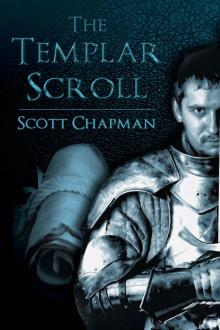 The Templar Scroll: Book six in the series
The Templar Scroll: Book six in the series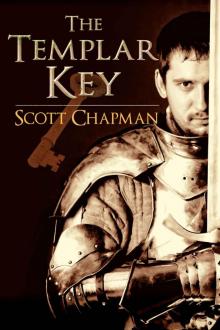 The Templar Key, By Number One Author (Peter Sparke Book 3)
The Templar Key, By Number One Author (Peter Sparke Book 3)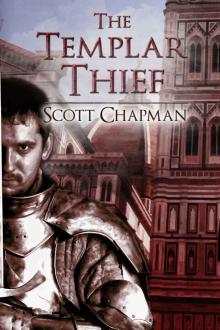 The Templar Thief: Peter Sparke book 4
The Templar Thief: Peter Sparke book 4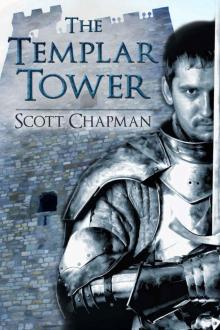 The Templar Tower: Peter Sparke Book Five
The Templar Tower: Peter Sparke Book Five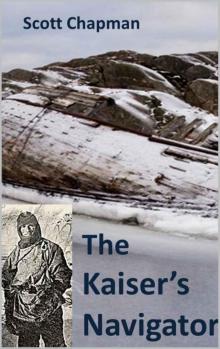 The Kaiser’s Navigator (Peter Sparke Book 2)
The Kaiser’s Navigator (Peter Sparke Book 2)